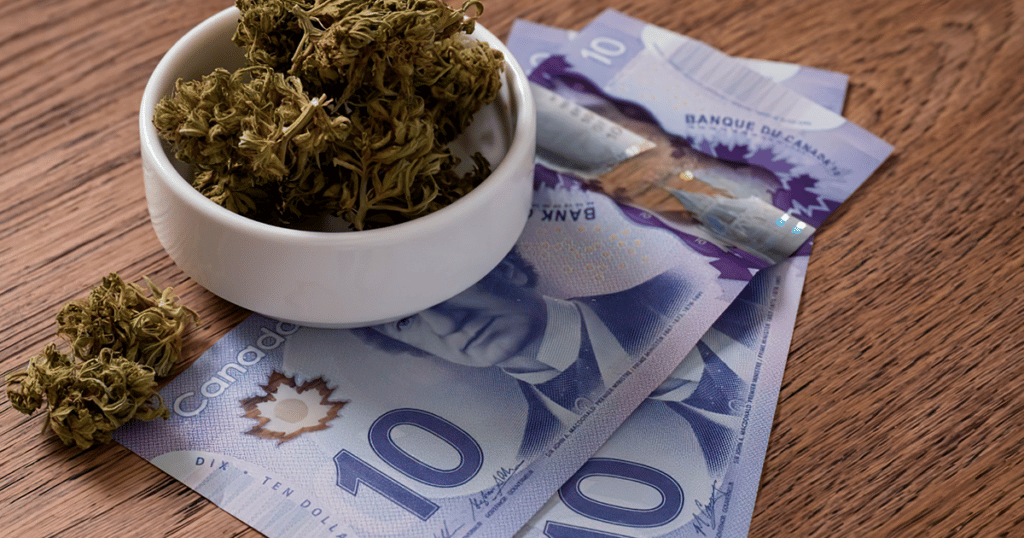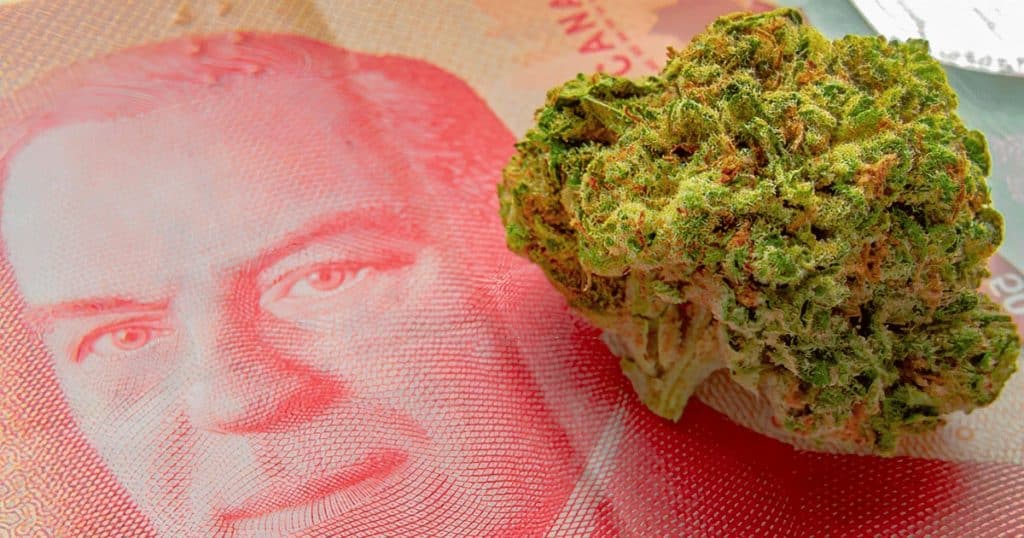In 2018, Canada became the second country in the world to legalize cannabis. This new legislation comes with regulations similar to those for alcohol in Canada, limiting home production, distribution, consumption areas, and sale times. Each province sets its own procedures for retail sales, and these vary as to ownership or retail outlets (by the provincial government or private enterprise).
The federal government has been dominating the market and making a lot of money at the expense of the private enterprise. Private-sector losses have exceeded 16 billion Canadian dollars ($12.5 billion), and these losses are primarily coming from big producers such as Smiths Falls, Ontario-based Canopy Growth Corp., Edmonton, Alberta’s Aurora Cannabis, and Tilray Brands.
The Alcohol Model
Canada legalized cannabis in 2018, and now provinces regulate the sale of cannabis similar to alcohol. Each province has different regulations, but they all share some similarities.
For example, BC and Ontario allow private retailers to operate dispensaries. This is similar to their alcohol laws. In Ontario specifically, while non-government retailers are allowed to sell alcohol, the Liquor Control Board of Ontario not only dominates the provincial market, but the federal market as well.
In Quebec, only one legal retailer for cannabis is allowed to exist in the market: The Société québécoise du cannabis (SQDC). This is similar to their alcohol sales, wherein the only legal liquor retailer is the Société des alcools du Québec (SAQ).
Each province can create laws surrounding controlled substance consumption, but one thing remains consistent through them all: the government is dominating the market, and private marijuana companies are struggling to keep up.
The Benefits Of Government Weed
The Canadian cannabis industry has been open for business since October 17, 2018. The country’s largest companies were expected to be profitable by 2022, but that hasn’t been the case at all. Despite investors pouring billions of dollars into the Canadian private cannabis industry, private corporations are struggling to keep up. The federal government even shields Canadian producers from foreign competition and grants them millions of dollars in federal grants, but the most profitable Canadian cannabis business has been the Ontario Cannabis Store, or OCS. They’re projected to earn roughly 262.8 million Canadian dollars next year. The SQDC has earned approximately 168.5 million Canadian dollars in net income since legalization last October 17, is second on this list, and the BC Liquor Distribution Branch (LDB), whose operations include cannabis, is third on this list.
Private companies like Canopy Growth Corp. put their profits into shareholder bonuses, executive salaries, and operations expansion – but where do government-owned cannabis corporations put their profits?
In the case of the SQDC, revenue after costs is remitted to the Ministère des Finances. That dividend is later reinvested into cannabis research. The OCS also puts the money back into the province. Amanda Winton, a spokesperson for the OCS, said in an interview that “Under the Ontario Cannabis Retail Corporation Act, 2017, net profits from the OCS may be paid into the Consolidated Revenue Fund and made available to the Ontario government to support its fiscal priorities. These revenues help pay for important public services that benefit all Ontario residents.”

No Profits In Pot?
Unfortunately, the private sector is a complete disaster. Since they began, numerous private firms have had operations plagued by poor earnings.
For instance, private corporations have incurred “balance sheet adjustments” totaling billions after losing hundreds of millions of dollars after disastrous greenhouse investments. Additionally, since the legalization of adult usage, they have only sold less than 20% of their crop, which is unsustainable for any agricultural enterprise. Since legalization, they have destroyed a staggering 900 million grams of unpackaged dried cannabis inventories. And they have produced far too much. By the end of November last year, licensed producers, wholesalers, and retailers had 1.4 billion grams of dried cannabis in storage — enough to provide every Canadian with 15 grams for more than 70 years, which is insane.
Canopy Growth is even involved in a messy acquisition scandal in the USA. This is on top of the massive layoffs from last year and over $6 billion in losses. Overall, it’s not a great look and certainly doesn’t inspire consumer trust.

Why Canadians Aren’t Buying From Private Businesses
As Americans, we often balk at the idea of government-owned anything. Our national ethos is based on hating the government and wanting them out of our business, our booze, and our bud. So when it comes to marijuana legalization, it’s no wonder that people are suspicious of a government monopoly on pot sales.
But in Canada, things are a bit different. Besides the obvious mistakes made by private cannabis corporations creating distrust among the people, Canadians generally trust their government according to a recent survey by StatsCan.
Government-owned stores were also able to implement themselves into the market faster than many private competitors. They tend to dominate both wholesale and retail markets, meaning private retailers are buying from the government to resell it. When this happens, private prices shoot up, and the government prices seem reasonable in comparison — and are therefore a better choice for most consumers.
The government-owned stores are also regulated, consistent, and reliable. At the SQDC (Quebec’s cannabis retailer), you know you’re not getting shake.
While the Canadian government could retain the same profits by simply increasing tariffs and taxes on the private sector, there’s no need. Currently, Canadians are happy with their access to cannabis. They trust the government-owned retailers, and are happy that the profits get put back into the community, and not into the hands of greedy corporations. While this certainly wouldn’t work for America, Canada’s cannabis industry is doing rather well, and as long as customers are satisfied and stoned, so are we.
Enjoyed that first hit? Come chill with us every week at the Friday Sesh for a freshly packed bowl of the week’s best cannabis news!
















